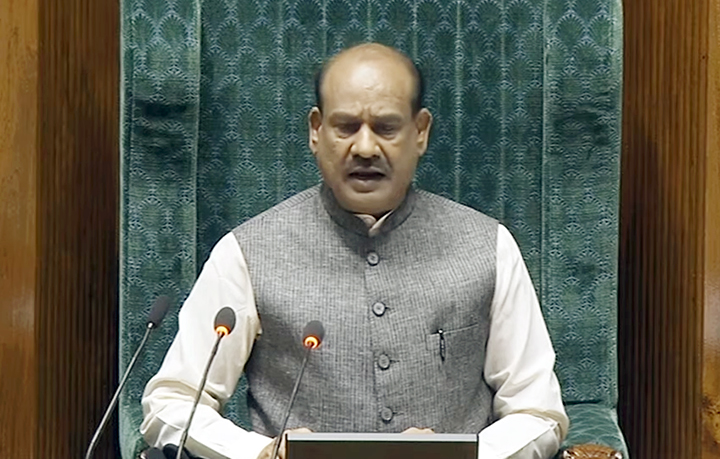
In a rare occurrence, the Lok Sabha is set to conduct a vote today to elect its Speaker, a significant event happening after 48 years. The contest is between the incumbent Speaker Om Birla and veteran MP K Suresh from Kerala, who has served eight terms. Despite attempts at reaching a consensus, the government and opposition have failed to agree on a candidate, leading to today’s historic vote.
The opposition had demanded the Deputy Speaker’s position be allocated to them, a request the government did not entertain. Consequently, the opposition has fielded K Suresh against Om Birla. The last time such a vote was held was in 1976, and before that in 1952 and 1967. Today’s election, set for 11 AM, marks a significant moment in India’s parliamentary history.
Prime Minister Narendra Modi and other government ministers had called for a consensus on Om Birla’s nomination, but their efforts were in vain. The INDIA coalition, representing the opposition, insisted on securing the Deputy Speaker’s post. When this demand was not met, they put forth K Suresh as their candidate. The ruling National Democratic Alliance (NDA) has 293 members in the Lok Sabha, while the INDIA coalition has 232 members, suggesting an easy victory for Birla.
Adding to the complexity, five opposition and two independent MPs have not yet taken their oaths, making them ineligible to vote. This further tilts the balance in favor of Om Birla, who is poised to be re-elected given the numerical strength of the NDA.
The opposition had also hoped to secure the Protem Speaker’s position, but this was also allocated to BJP’s Bhratruhari Mahtab. On Tuesday, the government made another attempt to build consensus around Om Birla’s nomination but clarified that they were not considering the Deputy Speaker’s post for the opposition. This stance was reiterated by Defense Minister Rajnath Singh, who communicated with opposition leaders Mallikarjun Kharge and T.R. Baalu. However, Congress leader K.C. Venugopal conveyed the opposition’s demand for the Deputy Speaker’s post, which Rajnath Singh did not agree to, leading to the formal nomination of K Suresh by the Congress.
Rahul Gandhi revealed that Rajnath Singh had called Mallikarjun Kharge to discuss support for Om Birla but did not follow up after the opposition’s demand for the Deputy Speaker’s post. This lack of communication led to further dissatisfaction among the opposition ranks.
There was some friction within the opposition as well, with the Trinamool Congress expressing objections to K Suresh’s candidacy, claiming Congress had announced his name without proper consultation. However, sources indicate that Rahul Gandhi called Mamata Banerjee on Tuesday, hinting at a possible resolution of the discord.
This election is historic not only because it breaks a long-standing tradition of electing the Speaker through consensus but also because it underscores the current political dynamics in India. The outcome is likely to have implications for future parliamentary proceedings and the balance of power between the government and the opposition.
As the Lok Sabha convenes today, all eyes will be on this unprecedented vote, which reflects the evolving landscape of Indian politics and the increasing complexity of parliamentary negotiations. The result will determine the leadership of the House and potentially influence its functioning in the years to come.
